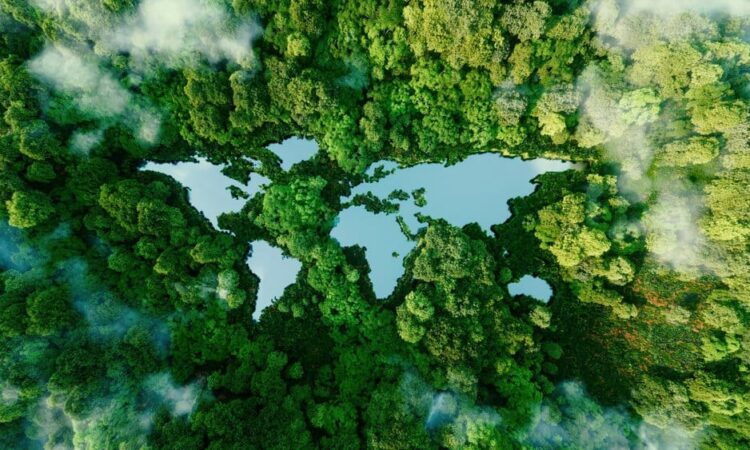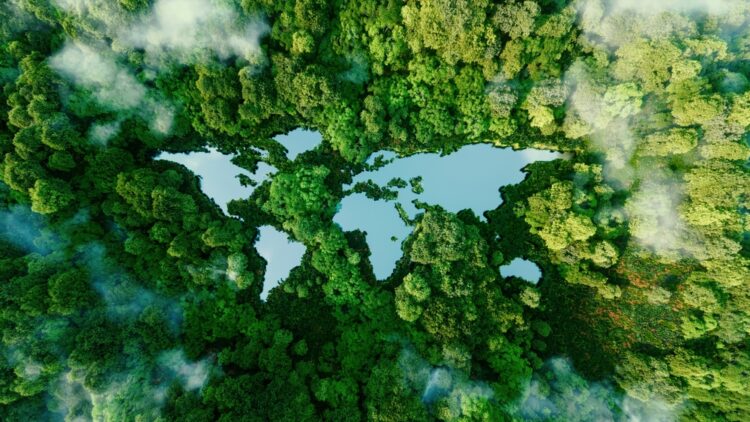
The Green Deal assumes economic growth can be ‘decoupled’ from ecological damage. That’s wishful thinking.

The European Union is seeking to lead the world in its political will to set goals to save the planet and humanity, to develop radically new tools to make the pursuit of these goals feasible and to reconcile aggressive public policy and radical corporate innovation. In December 2019, linked to the COP25 climate conference in Madrid, the European Commission set out a roadmap for a European Green Deal, designed to affect not only the climate but also agriculture, transport, industry—the whole of society.
The European Parliament approved two resolutions, before and after the commission announcement. The first declared a ‘climate and environmental emergency’—in Europe and globally—and called on the commission to ensure that all relevant legislative and budgetary proposals were fully aligned with the objective of limiting global warming, under the Paris Agreement of 2015, to 1.5C above pre-industrial levels. The second urged the EU to submit its strategy to reach climate neutrality, as soon as possible but by 2050 at the latest, to the secretariat of the United Nations Framework Convention on Climate Change. In the meantime, it must include in the European Green Deal a target to reduce greenhouse-gas emissions by 2030 by 55 per cent, which became enshrined in the European Climate Law.
In July 2021, when that law came into effect, the commission fleshed out what the European Green Deal would deliver. Meantime, in March 2020 it had set out an action plan for a ‘circular economy’, which would seek to reuse many materials—such as glass, paper, plastic and clothing—and produce equipment with a longer lifespan. According to the commission, ‘The circular economy will help us decouple economic growth from resource use, protecting Europe’s natural resources while boosting sustainable growth.’
Global environmental impacts
But is such ‘green growth’ realistic? One has to consider the whole life-cycle of products, the environmental impacts at every step of the global value chain on which production in the global north depends: excavating raw materials, land use, water use and contamination, the destruction of the livelihoods of people who happen to live where materials are extracted, and the environmental costs of transporting raw materials, machines, pre-products and waste. Government policies in the north disregard these ‘imported’ ecological impacts and emissions.
Economic growth constantly requires more energy and more materials. This includes the raw materials we extract from the earth to make everything we use, as well as the land and water we use to do so and to produce machines, tools, products, housing and food. There are scientists and politicians who argue (as the commission echoes) that, if we produce more efficiently, we can decouple economic growth from the growth of material throughput, greenhouse-gas emissions, water and land use.
There is to date however no empirical evidence that this is possible. On the contrary, every time a production process becomes more efficient this leads to an increase in production, and thus to the use of more materials and energy. In environmental psychology, this is called the rebound effect.
Renewable energy?
Analyses show moreover that if we could generate all the energy we use today (without increasing usage) from renewable sources there would not be enough minerals to produce the machines to do so. In that sense, ‘renewable energy’ is something of a misnomer.
The sun, wind and water are always there—they need not be renewed. But the machines required to harness that energy contain a host of minerals: batteries include cobalt, lithium, nickel, manganese; solar panels need rare earths (neodymium and dysprosium), cadmium, indium, gallium, selenium, silver, tellurium. Aluminium and copper are used in all technologies. Not all these minerals are recyclable and even if recyclability could be improved enormous additional amounts would still be needed.
These minerals are mainly located in countries of the global south, including Africa and Latin America, where international corporations are under less pressure to respect workers’ rights, including banning child labour. Their extraction will continue to affect the global ecosystem through emissions, the use and contamination of fresh water, deforestation and excessive land use, which reduces arable land available to produce food.
We need your support
Social Europe is an independent publisher and we believe in freely available content. For this model to be sustainable, however, we depend on the solidarity of our readers. Become a Social Europe member for less than 5 Euro per month and help us produce more articles, podcasts and videos. Thank you very much for your support!
Deeply ingrained idea
The idea of ‘growth’ is not only an economic category but is deeply ingrained in everyday life. Many people make sense of their lives through accumulating things—the newest phone, car or clothes. Growth is embedded in a capitalist system of production which engenders a dominant culture of competition and individualisation. We believe that this needs to be replaced by a culture of solidarity—of wellbeing through conviviality, not only with other human beings but with all living species.
This seems an unsurmountable task. Yet contradictions abound between individualistic competition and the needs of human beings for self-development and collective efficacy, their interest in doing a job well for its own sake and practices of care within and outside the workplace. These needs and practices can become the sources of another way of living, in alliance with other human beings and other species.
Looking at trade unions and their strategies for a ‘just transition’, we also find these contradictions in their everyday policies. They care for their members but also feel the pressure setting their interests against those of other workers and of the natures that nurture us. As researchers and as activists we need to understand and strengthen the alternatives and build on those interests of workers conducive to an ecologically and socially just way of living—what indigenous communities rejecting ‘extractivism’ have defined as the ‘good life’.
‘Prosperity without growth’
Based on these needs for a good life, for conviviality and mutual care—and for work that is not only secure and provides a living wage but also develops workers’ capabilities and autonomy—a large literature has emerged in the last 20 years arguing for ‘prosperity without growth’. One supporting argument is research showing that, above a certain level, additional assets do not increase happiness.
True, many people in Europe, let alone in the wider world, do not reach that threshold today. But economic growth is not the way to end poverty in the world: what we need to do is put an end to inequality. There is enough wealth in the world—the problem is how it is distributed and where it is produced at which price for people and planet.
For instance, in Brazil soya production is constantly growing. This does not feed Brazilians but pigs in China, among other animals. At the same time, production of rice and beans is constantly sinking. It is thus no surprise that the idea of a good life for all that does not depend on permanent growth originates from indigenous communities in the global south, more precisely the Quechua in Bolivia and Ecuador. Sumak kawsay is usually translated as buen vivir, to live well. More precisely, it means ‘a plentiful life’ in harmony with the earth and other living beings.
The path to prosperity without growth is certainly not easy. But it aims to resolve the impasse of ‘green growth’, while promoting a good life for all humans and the flourishing of the non-human species on which their own flourishing depends.
Entangled in capitalist relations
If environmental studies and environmental labour studies want to contribute to an ecologically and socially just transformation, they need to include all working people in their analyses—no matter in which part of the world they work and how they work. They need to understand the contradictory and different ways in which they are all entangled in capitalist relations of production.
All work, paid or unpaid, in the care sector or in industry, is ecologically damaging to different degrees (think of the detergents used in households) and produces more or less socially useful products (often less, thinking of mass soya production). The task is to disentangle the destructive from the productive, the useless from the useful. The separation between work that produces things and work that produces life (called reproduction)—which sometimes goes along with condemning the former and romanticising the latter—is detrimental to keeping the planet habitable for all living species and creates rifts.
To bring working people together, we should investigate how all work needs to be transformed so it can become ecologically viable, socially useful, develop workers’ capabilities and create safe and just working conditions.








